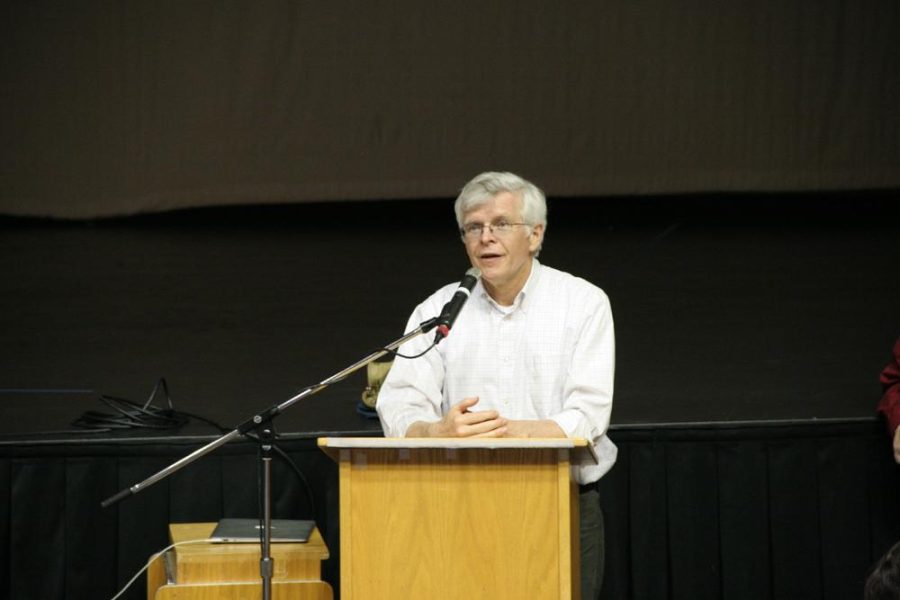Two professors from the University of California, Davis, Martha Macri and Bruce Winterhalder, spoke on the decline of classic Maya civilization as keynote speakers for Earth Week at Cosumnes River College on April 22.
Macri received her Ph.D. in Native American studies and linguistics while Winterhalder, an anthropologist and behavioral ecologist, received his Ph.D. in anthropology and graduate group in ecology. Their presentation focused on how climate change led to the collapse of the Mayans.
“We learn more and more about the period by simply paying attention to the Mayan people,” Macri said. “This isn’t a 100 percent answer to all of our questions about the Mayans, but it shows how the major changes of the weather coincides with the major changes on a social and cultural level.”
To start out the presentation, Winterhalder gave some background on the Mayan’s archaeological time frame.
“What do we mean and not mean by the collapse?” said Winterhalder. “The classic Maya period had an early, late and terminal stage: the terminal stage in which the collapse actually occurred and rather suddenly.”
Winterhalder went into detail about what the general argument is for the rapid decrease of the Mayan peoples in such a short amount of time.
“Around 300 C.E. the climate began to exponentially get better and better until about 700 C.E. when it began to plummet, coinciding with the growth of cities,” Winterhalder said.
When Macri and Winterhalder opened up for questions, one of the questions that arose was if any Mayan language is still used today.
“Today, there are over 30 Mayan languages still spoken,” Macri said. “There are subgroups that are very close to each other and others that are very distant. It totally fascinates me.”
Another question asked was if the movie “Apocalypto” is an accurate representation of the Mayan people.
“The movie ‘Apocalypto’ is sort of universally trashed by the people who study the Maya,” Macri said. “I began to watch it once and I couldn’t finish it.”
Both Macri and Winterhalder stressed the importance that the Maya culture and civilization is still alive today.
“It was the end of maybe the stone monuments. It was people moving out of the big cities and depopulating the center,” Macri said. “But it wasn’t the end of the Mayans at all.”

